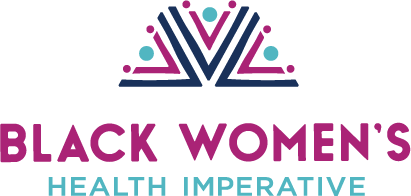Background
Lead is a potent neurotoxin that accumulates in the body over time and has been linked to several serious health conditions. The risk of exposure is greatest in children. Studies have found that heavy metal impedes nervous system development, triggers learning disabilities, impairs hearing and reduces the function of blood cells. According to the Centers for Disease Control, there is no safe level of lead exposure. In children, lead exposure causes reduced IQ, poorer language development and attention span, and increased aggression and impulsivity. In addition, prolonged exposure for both children and adults can damage the brai and nervous system, reduce fertility, and increase the risk of hypertension, heart disease, kidney disease, and possibly cancer.
Several studies have found that a given increase in blood lead levels can have greater effects on cognition, academic performance, and earnings for disadvantaged students than for their peers. Children in high-poverty areas are nearly 2.5 times as likely to have elevated blood lead levels than children in low-poverty areas, and children in predominantly Black zip codes are about 9 percent more likely than children in predominantly white zip codes to have detectable lead in their blood. Due to racial disparities in lead exposure, Black infants are estimated to experience around a 50% higher average loss of IQ points attributable to blood lead than white or Hispanic infants, and an estimated $47,000 loss in lifetime earnings, compared to white and Hispanic losses of around $30,000.
Children & Lead in Georgia’s Water
The Environmental Protection Agency (EPA) estimates approximately 46,000 lead water lines existing in Georgia, and school-aged children are affected. Environment America Research and Policy Center found that children in Georgia and
across the country could be ingesting lead at their schools. According to their report, Georgia scored an “F” for its policies addressing lead in water and keeping kids safe from lead poisoning after testing drinking water at schools, nationwide, and found that Georgia has no state laws or regulatory requirements to address lead in schools’ drinking water.

Steps Towards Lead-Free Water
In July 2021, the Georgia Department of Education announced a new initiative to provide free funding and resources for schools across the state to test their drinking water for lead. More than a year later, only 96 schools and daycare centers had enrolled in the program, and 82 completed testing — a small fraction of Georgia’s more than 2,300 schools and 3,100 daycare centers. Program administrators and environmental advocates say that while the testing is free, under-enrollment is owed to a lack of funding to help schools address any lead contamination they may find. Of the facilities tested in Georgia, 30 (37%) had at least one tap with lead levels in excess of 15 parts per billion, the action level at which federal regulation requires utilities to address the contamination.
President Biden’s vision of lead-free water systems and dedicated funding from the Bipartisan Infrastructure Law is expected to advance the goal of replacing 100% of lead service lines. The Bipartisan Infrastructure Law provides $15 billion through EPA’s Drinking Water State Revolving Fund (DWSRF) in the form of grants and loans to water systems for lead service line replacement (LSLR). Forty-nine percent of this funding must be provided to disadvantaged communities (as defined by the state) as grants or principal forgiveness loans— which can provide a pathway for underserved communities that might not otherwise have access to funding for water infrastructure upgrades.
The EPA proposes regulatory revisions to the National Primary Drinking Water Regulation (NPDWR) for lead and copper under the authority of the Safe Drinking Water Act (SDWA). This proposed rule provides more effective protection of public health by reducing exposure to lead and copper in drinking water. It strengthens procedures and requirements related to health protection and the implementation of the existing Lead and Copper Rule (LCR) in lead tap sampling, corrosion control treatment, lead service line replacement, consumer awareness, and public education. Additionally, the proposal includes new requirements for community water systems to conduct lead testing in drinking water and public education in schools and childcare facilities. The NRDC suggests that EPA’s revised LCR also require that every lead service line in the nation be fully removed, at utility expense, within 10 years, and include additional actions.
The money comes from an enormous $6.5 billion pot that Environmental Protection Agency (EPA) said it was releasing to all 50 states, plus tribes and territories around the country, based on needs determined by a recent nationwide drinking water assessment. Georgia is also receiving its regular allocation from the federal Drinking Water State Revolving Fund — a longstanding grant program for water safety improvements.

A Call to More Expedient Action
The deadline for EPA’s requirement to prepare and maintain an inventory of service line materials is October 16, 2024. However, the Black Women’s Health Imperative (BWHI) urges Georgia officials to strategize more immediate protections from lead exposure throughout the state of Georgia and establish state laws or regulatory requirements to address lead in schools’ drinking water – promoting healthier lives and a more robust economy.
REFERENCES
1. Kann, Drew (April 5, 2023). The Atlanta Journal-Constitution. Georgia getting $120 million to remove lead pipes, ‘forever chemicals’. https://www.ajc.com/news/georgia-news/georgia-getting-120-million-to-remove-lead-pipes-forever chemicals/TFJD6D6KN5DHTNR4KUJPETMDOY/#:~:text=Georgia%20does%20not%20have%20as,water%20lines%20exist%20in%20Georgia
2. Campbell, Sophia and Wessel, David (May 13, 2021) Brookings. What would it cost to replace all the nation’s lead water pipes? https://www.brookings.edu/blog/up-front/2021/05/13/what-would-it-cost-to-replace-all-the-nations-lead-water-pipes/
3. WSBTV.com News Staff (February 24, 2023) New nationwide study finds Georgia students may be ingesting lead from drinking water. https://www.wsbtv.com/news/local/new-nationwide-study-finds-georgia-students-may-be-ingesting-lead-drinking-water/AXYSCJ6KJ5EKPCRBJPJ5KZMXQQ/
4. Mehta, Gautama (January 5, 2023). GPB. PBS. NPR. Georgia offered schools money to test their water for lead. Most didn’t sign up. Why? https://www.gpb.org/news/2023/01/05/georgia-offered-schools-money-test-their-water-for-lead-most-didnt-sign-why
5. US Environmental Protection Agency (April 7, 2023), Water Infrastructure: Lead Service Line Replacement Accelerators https://www.epa.gov/water-infrastructure/lead-service-line-replacement-accelerators
6. Cellarius, Doris. (February 1, 2021). Biden Freezes Implementation of Lead and Copper Rule. Sierra Club Grassroots Network. https://content.sierraclub.org/grassrootsnetwork/team-news/2021/02/biden-freezes-implementation-lead-copper-rule
7. Olson, Erik (February 28, 2023). EPA’s Chance Is NOW to Finally Fix the Broken Lead & Copper Rule. NRDC. https://www.nrdc.org/bio/erik-d-olson/epas-chance-now-finally-fix-broken-lead-copper-rule
8. Cellarius, Doris. (February 1, 2021). Biden Freezes Implementation of Lead and Copper Rule. Sierra Club Grassroots Network. https://content.sierraclub.org/grassroots-network/team-news/2021/02/biden-freezes-implementa-
tion-lead-copper-rule
9. US Environmental Protection Agency (June 28, 2023). Revised Lead and Copper Rule: Lead and Copper Rule Revisions Service Line Inventory Guidance. https://www.epa.gov/ground-water-and-drinking-water/revised-lead-and-cop-
per-rule
BWHI is dedicated to improving the health and wellness of our nation’s 21 million Black women and girls—physically, emotionally, and financially. Our core mission is advancing health equity, reproductive, and social justice for Black women, across the lifespan, through policy, advocacy, education, research, and leadership development. For more information on BWHI, visit www.bwhi.org.


